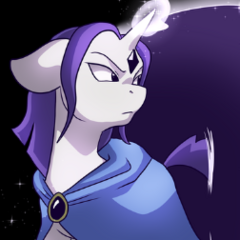In defense of power gaming.
Power gaming is defined as optimizing the rules of a role playing game in order to create the most powerful character possible. The implication is that this is done with no regard to the story of the game. In other words, the player cares about being powerful and does not care if it makes sense in terms of the plot of the game. Power gamers are often derided and ridiculed. Why? It irks me that people criticize players who do nothing more than read the rules and strategize.
Power gaming, also called “min-maxing,” is particularly a problem with D&D 3rd edition it's derivatives (such as Pathfinder). The reason for this is the feat system in these games. The older editions of D&D, under TSR, did not have a feat system and so power gaming was not much of a problem. The feat system breaks the game because, for the most part, feats offer the character exceptions to the rules.
The rules of the game are designed to be balanced. This means that if a character class has an ability, it also has some kind of limitation so that the class does not become too powerful. Offering rule-breaking abilities is an easy way to give a character more power. But it is like a drug: the first few times offer some benefits, but too many of them add up to a catastrophe. The problem is that the writers of the feats, especially supplementary books, don't cross reference every feat to see what the effects could be. There are too many possible combinations to test. Being able to ignore one or two rules is not a problem. But players have figured out which combinations make a character super powerful. The feat system is inherently flawed.
But this is not the fault of the player. Why wouldn't you choose a combination of abilities that would benefit you the most? At what point do you say that it is too much? What if I accidentally stumble upon a powerful combination of feats? If I were playing a game and the DM told me that I couldn't pick a feat because it would make my character too powerful then I would quit the game. If the DM put restrictions on my character from the beginning then I wouldn't start the game.
It is a game, and a game has rules. If a player is staying within the rules then he is not cheating, by definition. You also have to remember that a game has to take some liberties. In a novel, a Mary Sue character would be boring. But in a game, you are going to do everything you can to survive.
I also find it annoying when players take on a limitation just for the sake of story or tone. For example, a player might only fight with his family's sword, even if he found a better weapon. Yeah yeah yeah, your character is so interesting because he has that trait, but screw that! I'm going to pick up that Sword+4. What do you gain by intentionally limiting yourself? A dead character, that's what. “My character hates water, so he won't get on a boat.” Why? It makes no sense.
Don't blame the player for following the rules. If the game is broken then that is the game's fault.




1 Comment
Recommended Comments
Create an account or sign in to comment
You need to be a member in order to leave a comment
Create an account
Sign up for a new account in our community. It's easy!
Join the herd!Sign in
Already have an account? Sign in here.
Sign In Now